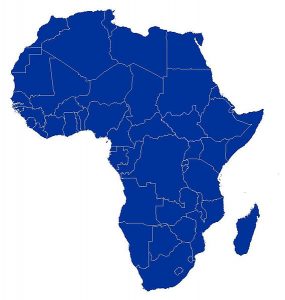By NewsDesk @infectiousdiseasenews
Niger
The World Health Organization (WHO) reported today on a new outbreak event in Niger. Officials now report a cholera outbreak in the country, which since June 7, 201 confirmed cases have been reported, including 12 deaths (6% CFR).

Maradi and Zinder are the two regions affected with most of the cases being related to the epidemic which is ongoing for several months in the neighboring regions of northern Nigeria where there is significant mixing of cross-border populations and with heavy rainfall recorded during this period.
Nigeria
In Nigeria, the Nigeria Centre for Disease Control (NCDC) reports 31,425 suspected cases of cholera, 311 confirmed cases and 816 deaths since the beginning of the year from 22 states and FCT.
The affected states are Benue, Delta, Zamfara, Gombe, Bayelsa, Kogi, Sokoto, Bauchi, Kano, Kaduna, Plateau, Kebbi, Cross River, Niger, Nasarawa, Jigawa, Yobe, Kwara, Enugu, Adamawa, Katsina, Borno and FCT.
Cholera
Cholera is a water-borne disease characterized by sudden onset of profuse watery diarrhea, which can lead to sudden death as a result of dehydration, if not managed on time. Other symptoms include nausea, vomiting, and weakness. Most infected people may only show mild symptoms or have no symptom at all. The time between an infection and appearance of symptoms of the disease is 2 hours to 5 days. The disease is easily treatable, if detected early. Most infected people can be treated successfully through prompt administration of oral rehydration solution (ORS), with the goal to replace lost fluids and electrolytes. The ORS solution is available as a powder that can be reconstituted in boiled or bottled water. Without rehydration, approximately half the people with cholera die. With treatment, the number of fatalities drops to less than 1 percent. Severely dehydrated people may also need intravenous fluids.
- Human anthrax case reported in Karabudakhkent region, Russia
- Russia: Norovirus outbreak sickens dozens of children onboard train
- Vanuatu: Dengue outbreak reported on Efate Island
- Melioidosis fatality reported in Georgia
- Prion research suspended in France following death of lab worker -Video news report
- Colorado: Dog tests positive for plague in Teller County
- Marburg virus confirmed: 1st ever case in Guinea
- E. coli Outbreak Linked to Portillo’s in Chicago
- China: Human anthrax case reported in Beijing
- Philippines COVID-19: Increase in cases nearly 50%, Most regions report Delta variant
- Democratic Republic of the Congo: 7 days in jail for not wearing a mask in Lubumbashi

